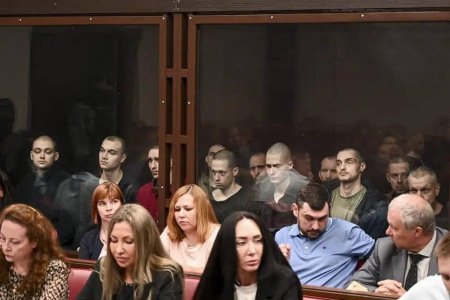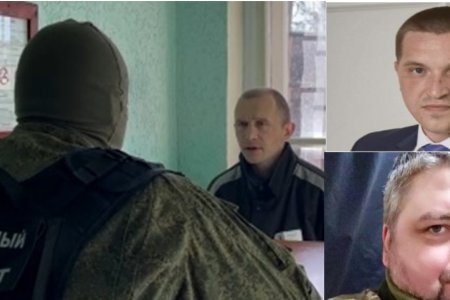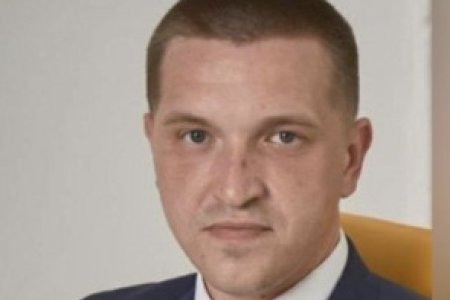
Oleksandr Ishchenko is the fourth Ukrainian political prisoner to have died in a Russian penal institution in the last two years. While Russia has not revealed how he died, 55-year-old Ishchenko was a prisoner of war and should not have been held in the horrific conditions of a Russian SIZO [remand prison] at all, let alone facing preposterous charges together with 23 other men and women for defending Ukraine.
Ishchenko (b. 13.06.1969) enlisted within two days of Russia’s full-scale invasion of Ukraine as a military driver for the Azov Regiment and was among the defenders of Mariupol until his capture on 4 April 2022. This was the date given by the Memorial Support for Political Prisoners Project in declaring Ishchenko a political prisoner, and was, presumably, when he was taken prisoner by the Russian invading forces. Russia has systematically violated the Geneva Convention on the treatment of political prisoners (POW), killing many Ukrainian POWs in cold blood, and torturing the vast majority of those whom it imprisons. Oleksandr Ishchenko was also one of an ever-increasing number of prisoners of war against whom Russia brought absurd criminal charges.
It is typical that Russia has not even formally notified Ukraine of Oleksandr Ishchenko’s death. The news came first from his daughter, Krystyna, who wrote on 31 July that the family had learned of his death nine days earlier. That same day, his death was announced at the Southern District Military Court where Ishchenko and 23 other Ukrainian men and women were facing ‘trial’. The ‘court’ that day concluded its supposed examination of the ‘evidence’, and was due to move on to the ‘court debate’, one of the final stages before the verdict. The latter, however, was adjourned until 7 August in order for the court to receive the formal confirmation of Ishchenko’s death.
It was only on 15 June 2023 that Ishchenko’s family learned that he was ‘on trial’ and facing a possible 20-year sentence. This judicial travesty was, appropriately enough, taking place at the same Southern District Military Court in Rostov (Russia) that has sentenced a huge number of Crimean Tatar and other Ukrainian political prisoners to long terms of imprisonment without any crime.
It had earlier been reported that 24 men and women were to go on ‘trial’, however on 14 June 2023, it was learned that two of the prisoners of war – David Kasatkin and Dmytro Lablinsky – had been released in an exchange of prisoners. Memorial still refers to 24 political prisoners in this case and says that two are ‘on trial’ in absentia. It names nine women and fifteen men, although the latter figure included the two men ‘tried’ in absentia and Oleksandr Ishchenko. They are all asserted to have, at different times, served in the Azov Regiment. Russia’s ‘trial’ of the Ukrainians Is in flagrant violation of international commitments with respect to prisoners of war, and also infringements fundamental principles of law, with one of the surreal charges against the Ukrainian POWs based on a Russian supreme court ruling passed after the Ukrainians had been seized.
Although Memorial does provide a detailed explanation for why it considers all of the imprisoned POWs to be political prisoners and demands their release, the very charges are glaringly preposterous. The Ukrainians were, in various capacities, serving in the Azov Regiment, a part of Ukraine’s Armed Forces and, as such, defending Ukraine against a foreign invader. Despite this, Russia laid some or all of the following charges: ‘actions aimed at the violent seizure of power or violent change in the constitutional order of the Russian Federation’ (Articles 278 and 35 § 4 of Russia’s criminal code); ‘organizing the activities of a terrorist organization or participation in it (Article 205.5 § 1 or 2) and (against 11 men) ‘undertaking training for the purpose of carrying out terrorist activities’ (Article 205.3). The charges can carry a sentence of from 20 years to life imprisonment, although they are based solely on a flawed and politically motivated ruling from the Russian Supreme Court on 2 August 2022. This ruling declared the Azov Regiment a ‘terrorist organization’. As well as there being no grounds, nor legality, for Russia to claim that Ukrainian defenders from a Ukrainian Armed Forces regiment were ‘terrorists’, the very use of this as an excuse meant that Russia was making the law retroactive, since all of the prisoners of war had been taken into custody long before the ruling was passed. .



